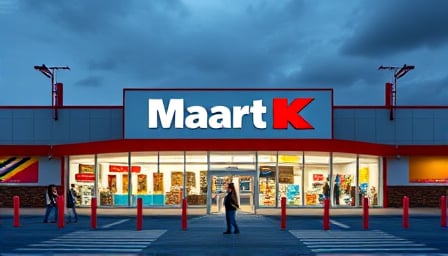Wesfarmers Ltd: Navigating Shareholder Expectations Amid Regulatory Scrutiny
Wesfarmers Ltd. remains a cornerstone of the Australian consumer‑discretionary sector, with a market capitalization exceeding AUD 104 billion and a price‑to‑earnings ratio of 35.82. The company’s broad portfolio spans retail chains, mining operations, insurance, and industrial product distribution. Recent events have placed its retail arm, Kmart, in the spotlight and prompted shareholders to re‑evaluate the firm’s risk profile and governance practices.
1. Kmart’s Facial‑Recognition Controversy
On 18 September 2025, the Office of the Australian Information Commissioner (OAIC) issued a formal finding that Kmart, the budget department store operated by Wesfarmers, breached privacy regulations. The regulator determined that Kmart deployed a facial‑recognition system designed to deter refund fraud, but failed to notify shoppers or obtain their consent before collecting biometric data. The breach was highlighted in both Reuters and Channel NewsAsia reports, underscoring the gravity of the offence and the potential for reputational damage.
- Key implications:
- Regulatory penalties: The OAIC may impose fines or require remedial action, adding an unforeseen cost burden.
- Consumer trust: Negative publicity could erode shopper confidence, potentially affecting Kmart’s foot traffic and sales.
- Operational review: Wesfarmers will likely undertake a comprehensive audit of its privacy practices across all retail outlets, a process that could strain resources and divert management focus.
2. Annual General Meeting and Shareholder Communications
Earlier in the month, on 17 September, Wesfarmers issued a Notice of Annual General Meeting (AGM) in accordance with ASX Listing Rule 3.17.1. The AGM, scheduled for the week of 20 September, will provide shareholders an opportunity to discuss:
- Financial performance: The company’s latest quarterly earnings, dividend policy, and cash‑flow outlook.
- Governance matters: Board composition, risk management frameworks, and the impact of the Kmart privacy incident on corporate governance.
- Strategic direction: Expansion plans in retail, mining, and industrial sectors, and how the firm intends to mitigate regulatory risks.
Shareholders are urged to review the AGM materials, which will include detailed disclosures on the OAIC findings and the steps Wesfarmers has taken to address them.
3. Investor Sentiment and Passive Income Considerations
The Australian Investor Forum (AIF) published a piece on 18 September asking how many Wesfarmers shares are needed to generate a AUD 1,000 annual passive income. At the closing price of AUD 92.43 on 16 September, a simple calculation shows that approximately 11,000 shares would be required, assuming a dividend yield close to the market average for the sector. While Wesfarmers does not currently pay a high dividend, the company’s stable cash flow from its mining and industrial operations makes it a candidate for long‑term capital appreciation rather than immediate yield.
4. Market Context and Technical Outlook
- Stock performance: The share price has trended upwards, reaching a 52‑week high of AUD 95.18 on 21 August. The recent privacy breach has, however, introduced volatility, and the market has adjusted the price‑to‑earnings ratio to 35.82.
- Sector dynamics: Consumer discretionary stocks in Australia have benefited from steady retail demand, but regulatory scrutiny adds a layer of uncertainty. Wesfarmers’ diversified holdings help cushion the impact on its overall valuation.
5. Conclusion
Wesfarmers Ltd. stands at a critical juncture where its diversified business model offers resilience, yet its retail operations expose it to regulatory risks that can influence both financial performance and investor confidence. The Kmart privacy breach has spotlighted the need for stringent compliance frameworks, while the upcoming AGM will be decisive in shaping the company’s governance trajectory. Investors contemplating a stake in Wesfarmers should weigh the firm’s robust asset base against the potential costs of remediation and reputational management, recognizing that long‑term value creation may hinge on how effectively the company navigates these challenges.
